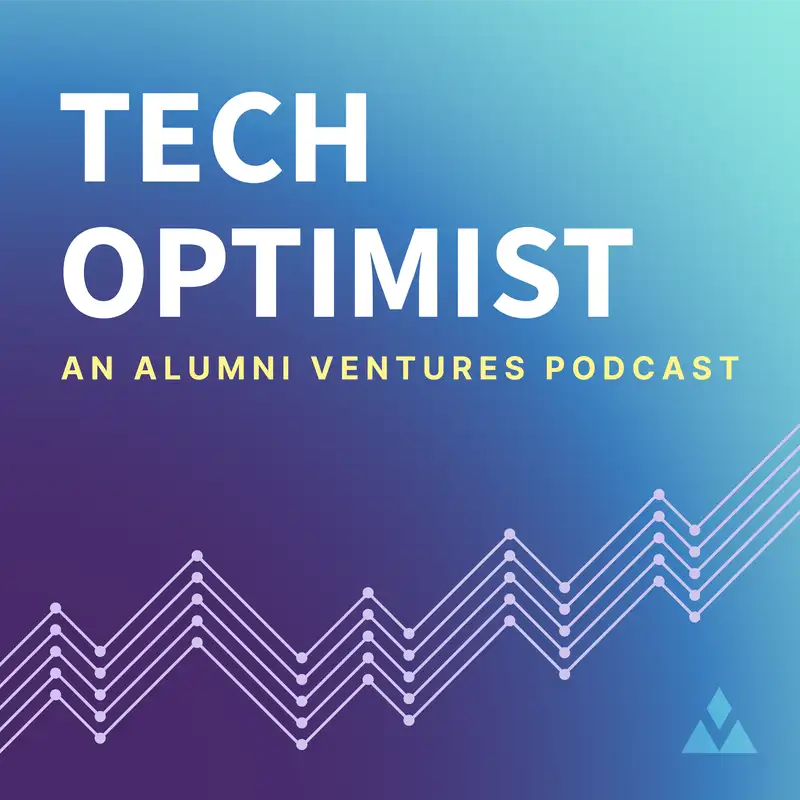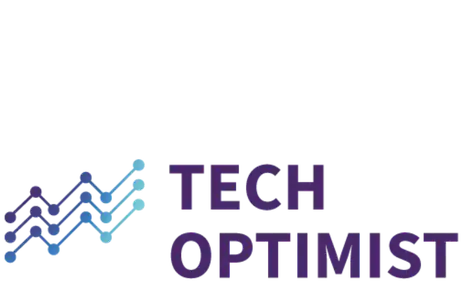#11 - Three Breakthroughs: Huge Oil Found in Antarctica, Apple and AI, Warp Drive Breakthrough
Speaker 1:
In a world captivated by criticism, it's easy to overlook the groundbreaking technologies shaping our future. Let's shine a light on innovators who are propelling us forward. As the most active venture capital firm in the US, we have an exceptional view of tech's real-world impact. Join us as we explore, celebrate, and contribute to the stories of those creating tomorrow. Welcome to the Tech Optimist. As a reminder, the Tech Optimist podcast is for the informational purposes only. It's not personalized advice, and it's not an offer to buy or sell securities. For additional important details, please see the text description accompanying this episode.
Drew Wandzilak:
Hello everyone and welcome to the Tech Optimist segment on three breakthroughs in science and technology. I'm Drew Wandzilak, a senior associate here with Alumni Ventures, and joining me is Mike Collins, co-founder and CEO, where we talk about three major breakthroughs in science and technology that are changing the world around us. Hello, Mike.
Mike Collins:
Hello, drew. Happy June.
Drew Wandzilak:
Happy June. How are you doing?
Mike Collins:
I'm great. I was just in Rocky Mountain National Park with a couple of other Dartmouth venture capitalists and the weather was great and we were able to catch up. And our country may have some issues, but I'll tell you, our national parks kick ass. Just awesome.
Drew Wandzilak:
You're a big national park guy.
Mike Collins:
Yeah.
Drew Wandzilak:
What's the Tally? How many? What's next?
Mike Collins:
One of the guys I was with is a list guy and he knew he had been to 37 or whatever. I've been to a lot, I would guess in that range, 30 to 40. Several pretty obscure ones. Isle Royale, which is an island in Lake Superior, I've been to. So anyway, I've been to my share, but Rocky Mountain National Park, Colorado, got to be in the top 10.
Drew Wandzilak:
Okay. What's number one? Do you have a number one?
Mike Collins:
My number one, I think would be their Zion or Glacier. Very different.
Drew Wandzilak:
I was going to say.
Mike Collins:
Yeah, the rock formations in Zion, some epic hikes. The Narrows, Angels Landing in Zion. Just amazing hikes. But I'm more of a mountain guy, I think at heart. So the mountains of Glacier, up in Canada, Banff is amazing. Rocky Mountain National Park, great.
Drew Wandzilak:
Not afraid of heights?
Mike Collins:
Oh, very afraid of heights, but sometimes you have to push your envelope a little bit.
Drew Wandzilak:
That's right. That's right. All right. Well, I'm happy to kick things off here with our first-
Mike Collins:
Yeah, you're first today. You get the first call from the lottery. What's a big breakthrough?
Drew Wandzilak:
Well, this headline is as intriguing as it is concerning, I would say. We have found some massive oil deposits off the coast of Antarctica, our seventh continent, which is not owned by a specific country. So you can imagine the imminent oil rush that could come from this could be concerning, but also shift some geopolitics that we should be taking a look at. So this discovery was spearheaded by Russia's state geological survey company, Rosgeologia, I think is how it's pronounced, and they found an estimated 500 billion barrels of crude oil beneath the cold waters of the Riiser-Larsen Sea. So I just want to break down before we jump into the discussion, what this means, why it matters. So first, some context. As I mentioned, Antarctica has been protected by international treaties since 1959, which set aside the continent for scientific research and environmental protection, so not under the ownership of a specific nation.
These treaties prohibit exploiting the region for hydrocarbon drilling. However, despite these agreements, nations like Russia and the United States have continued to probe Antarctic waters for potential oil reserves. So the waters around Antarctica, as opposed to the landmass itself. Russia's been doing this since the 1970s. They've been sending ships, equipment every decade, and now they've struck what could be one of the largest oil finds in the history of the world. It's not only significant for its size, but also because it's a region that had previously unexplored for oil. So we don't even know what other deposits could be there. This could be orders of magnitude larger than what's already the largest discovery. How does this work? This is obviously an area that's pretty untouched. It's wilderness. The oil is lying beneath layers of freezing ocean water and thick sea ice, making it incredibly difficult to access with current technology.
So we know it's there, but it's going to be difficult to get to it. It's kind of like finding a treasure chest buried beneath the mountain of ice. We know it's there, but it's a monumental challenge to get to it. And then finally, why does this matter? So this is a discovery that will ignite geopolitical tensions. As I highlighted earlier, the treaty system in place will be up for renewal in 2048, so we got a few decades to go. And that treaty has kept peace and protected the environment of Antarctica, but Russia found this. There's plenty of people that would love the abundance of oil that we've found. So some major impacts, I think geopolitically. Someone's going to go try to get this oil and how are we going to do it? So immediate thoughts on the news?
Mike Collins:
Yeah, again, it's a couple of thoughts. One, I remember in college taking energy classes where we were all talking about peak oil. And the danger of always underestimating human ingenuity, about to find new ways to extract oil on our planet because of the profit motive. You've got fracking, you've got shale, you've got all kinds of things that 30 years ago people thought were impossible. And then new discoveries, new technologies to find more oil. And I just think that's one. The humility of underestimating innovation and exploration, one does at peril. On the flip side, clearly fighting for resources has been the story of the human existence, and especially in these kinds of cases. It reminds me of space where people are also going to be fighting for resources, at least at some point in the future. So hopefully we can find common ground and a way to share and work together, and again, innovate. So perhaps we have to dig up less of our planet to fulfill our energy needs would be something that obviously we're all committed to. Those are my thoughts.
Drew Wandzilak:
Yeah, you mentioned the resilience of ingenuity. We know it's there, someone's going to go try to find it. There are, I think some pretty serious environmental concerns generally just drilling for oil, but in this environment specifically, because if something were to happen and you had some sort of oil spill, which we obviously know has existed in history, the harsh environment makes it so difficult to obtain and clean that up. So yeah, there's this balancing act that I imagine that's going to happen where we probably shouldn't go after it, but you know someone will, and so it's like how can we peacefully split the pie, protect the environment while doing so? And do we even need it? We will see.
Mike Collins:
Yeah. And then the question is, again, the benefits of some alternatives we're looking at. You've talked a lot and looked at a lot, fusion, fission. These kinds of things have risks, have costs, have environmental impacts. But yeah, you start digging in these sensitive regions of our planet, those come with costs too. So I think it's a matter of we have to keep pushing on all fronts. The demand for energy is always going to grow, and so that's just a given. And so we just need to work on all fronts, on all these matters. But yeah, it was big news for sure.
Drew Wandzilak:
Big news, big news.
Pete Mathias:
Hey everyone. Just taking a quick break so we can tell you about the US Strategic Tech Fund from Alumni Ventures. AV is one of the only VC firms focused on making venture capital accessible to individual investors like you. In fact, AV is one of the most active and best performing VCs in the US, and we co-invest alongside renowned lead investors. With AV's US Strategic Tech Fund, you'd have access to an investment portfolio focused on technologies that are critical to bolstering US national security and economic prosperity. We prioritize three key areas, homeland security, cyber AI and digital strategy and space innovation. By investing in companies innovating in these areas, you can support early-stage ventures and help encourage sustained growth and technological progress in the United States. If you're interested in learning more visit av.vc/usstrategictech.
Drew Wandzilak:
All right, Mike, I think you have our second breakthrough of the week.
Mike Collins:
And again, I'm sticking with the AI theme, and again, today is June 4th. So I'm going to talk about Apple and AI, which is kind of not an announcement, but it's an anticipated announcement. So I think among the big tech companies, the relative silence of Apple, one of the most powerful tech companies ever has been remarkable. And I think we're going to hear the first of what is going to become a lot of big announcements out of Cupertino and Apple over the next couple of years. They're smart, they have leaned into privacy. The Apple ecosystem is the most powerful mobile ecosystem, I think on the planet. And it's especially powerful among the top quartile of the population, socioeconomically. And they have your music, they have your calendar, they have all of your apps, they have your Instagram. They are in your pocket, they have your attention.
They are going to be in the AI space. And I think I am anticipating that a big part of their June development conference is going to be starting to tease that roadmap, where they will take what they're really good at and what they have. And for them, I think AI is a sustaining technology. So again, going to the Clayton Christensen model of disruptive versus sustaining, I think AI is going to be both. And I think this is going to make Apple even more powerful because they're going to take all the things that you trust them for and you've already given, and they're going to use AI to bring all those things together and amplify them in really, really powerful ways. I also think AI in certain new use cases is going to be incredibly disruptive.
I think some places, maybe in healthcare, I think et cetera, some vertical markets, and we'll have plenty of opportunities to talk about some of those breakthroughs in future episodes. But I would not be betting against Apple to be a major player in this space. They have a reputation of not always being the first to the start line, but when they do it, they do it really well. And so yeah, I think Apple and AI is going to be a big news story for the second half of 2024. And I'm really excited what they tease and they'll get it figured out.
Drew Wandzilak:
It seems like they're teasing a little bit of, at least a Siri upgrade. Do you think they develop a lot of their AI capabilities in-house? There's been rumors and reports on relationships with OpenAI or even Google. And there's precedent. Google is the search engine provider for iPhones. It was taken from an in-house structure. Do you think they develop it themselves or is this something that they get paid from someone else to do?
Mike Collins:
Yes, both. Meaning, again, we're talking about a trillion-dollar company. We're talking about ... I think there's a bunch of partners that they're going to be working with, but I got to believe that they're also building things themselves. This is a company also that has really leaned into being vertically integrated. And beyond the data, beyond the trust, beyond the relationships, this is also a company that makes its own silicon. And so I just think we're going to be seeing some of these language models getting smaller, getting more efficient, being put on chips. They're going to be on your phone.
Again, I am not going to tell you exactly how they're going to execute it, but I'm going to say they're going to figure it out and it is going to build on their already powerful branded moat, is my prediction. Which is I think one of the earliest and most powerful applications for AI is going to be the Apple version of AI as your personal assistant. So it knows your music, knows your calendar, knows your preferences and your health information. Again, people wearing Apple Watches, all of that. I think it's going to be AI helping all of that work together, and personal to Drew, personal to Mike, confidential to Drew. You're going to decide how much of this personal information ...
I think they're going to try to make AI and privacy the niche, that they're going to just be ... Because there's a lot of stuff which is like, "Oh, do I want all my information out there being scraped, being trained upon?" Again, I think they've leaned into privacy as one of their things. And so again, smart people, they're going to lean into their assets and this will just be making those assets even better. And yeah, improving Siri is a low bar for sure, but again, I would not underestimate Apple coming out of this as one of the big winners of the AI revolution. So that's the second one.
Sophia Zhao:
Hey everyone. Just taking a quick break so I can tell you about the AI Fund from Alumni Ventures. Alumni Ventures is one of the only VC firms focused on making venture capital accessible to individual investors like you. In fact, Alumni Ventures is one of the most active and highly rated VC in the US, and we co-invest alongside renowned lead investors. With our AI Fund, you'll have the opportunity to invest in a portfolio built entirely around advancements in AI. This fund consists of 15 to 20 investments in multiple fields where AI is making a huge impact, including areas such as machine learning, healthcare, education, transportation, and more. To get started, visit us at Av.vc/funds/aifund. Now back to the show.
Mike Collins:
What's your third one?
Drew Wandzilak:
Yeah, a groundbreaking scientific discovery in interstellar travel. So we're going into the stars here. A potential breakthrough and warp drive technology. So this is going to sound a little bit Star Trekkie. When I describe what happened, I'll start with kind of a metaphor and an analogy for what happened, breaking this down, I need a little bit of education myself to understand this breakthrough. Imagine you're on a long road trip. Normally you'd have to drive the entire distance, the eight hours or whatever. You're feeling every bump, curve along the way, but what if instead of driving, you could fold the road itself and you could get from point A to point B?
This is the classic fold the paper, put the pen through. Can we get worm holes and faster than speed of light travel? This is what warp drive technology is trying to achieve. Again, it sounds very Star Trekkie and sci-Fi. This idea came back decades ago. The original concept was creating this warp bubble is what it was called, an opportunity to manipulate space-time, and viewing space-time as a stretchy fabric. And we could squeeze and stretch this fabric in front of and behind a spacecraft. And so inside that bubble, you were experiencing time normally, but compared to the environment around you, you could actually move close to or faster than the speed of light.
Mike Collins:
I think, just to clarify, I don't think it exceeds speed of light. I think it is a fraction of the speed of light, which still greatly opens up a whole bunch of stuff. And I think I saw this same announcement. I believe this is still in theoretical model land. Is that correct, Drew? Yeah.
Drew Wandzilak:
Yes and no. So the original hypothesis was basically theoretically how we could do this. The one problem with the theoretical is it required negative energy, which if you know anything about physics, doesn't exist. So we were like, "If we could discover this material that doesn't exist in any world that we know." So there was this huge catch, it couldn't be done. Now researchers that applied physics have come up with a new approach that would use the same structure, but it doesn't need these exotic negative energy particles. Instead, they're using incredibly dense particles to create the same warp bubble structure. So think of a really dense elastic ball, you put a bunch of rubber bands around. That can squeeze and stretch. And when you squeeze one end, it moves quickly, that energy and that squeeze to the other side. And so this new warp drive potential technology would work very similar to that.
So you're creating the bubble around the spaceship with the dense matter. The ship will move through space by compressing space-time in front of it, and then expanding space-time behind it. So like a surfer riding a wave, the wave propels the surfer forward. I think you get it. So what's revolutionary about this, other than the fact that we can maybe go travel through space and get to other planets is exactly that. It's like we can control the density and pressure of the bubble. Scientists can use this. We can move between planets, potentially solar systems. So this is not something that will probably exist in our lifetime, but I think interesting how I see this as going from in the lab, if we could come up with some exotic particle that doesn't exist to now, "Hey, we might be able to do this, and there's a little bit more of a roadmap." It's still probably a multi-decades or centuries long roadmap, but the roadmap's there.
Mike Collins:
Yeah, I think it does point to the number of things that 50 years ago were wild science fiction that now exist. So you hear something like this and you roll your eyes and go, it's like, "Okay, there's some eggheads in a lab and MIT thinking about stuff on paper and it's never going to happen. Where are my flying cars?" This kind of thing. And again, I think with great peril, one says never. Fundamental laws of physics, for sure. But I think we're talking about not breaking those. I think we're talking about things that are really hard.
We've had these conversations where you can move things from the theoretical science, to now it's an engineering problem. And engineering problems, people figure out. Sometimes it takes 20 years, sometimes it takes 40 years. Again, I've seen charts about mean time between a science fiction description and it becoming reality is on average something like 30 to 50 years, a couple of generations kind of thing. So again, I think it is always healthy and always a reminder. And one of the reasons I think a lot of venture capitalists I know read science fiction, an uncanny number of venture capitalists read science fiction. I think there's something about out imagining the future and a certain amount of mental flexibility and openness that it takes in order to be a good investor in hard problems, deep technology, those kinds of things. So for everybody that says, "Oh, that's crazy science fiction." So is a super computer in your pocket.
Drew Wandzilak:
Yeah. It's similar to the concept of the years are long, but the decades or the centuries are short. We're approaching a time where you still could have people alive during the first self-propelled flight in 1904, and imagine where we are today. And so it's like over the 10,000 years of human history, at what point did people think it was just totally against any rules of science that you could pack 200 people into a metal tube and get from New York to London in six hours? So I think you framed it perfectly. It's theoretical to now it's an engineering problem. And these things, they can take a lot of time, but sometimes it's not as difficult or as long-term we might think it is.
Mike Collins:
Yeah. And one of our partners, Pete, his grandmother I believe was 101 yesterday, or 103.
Drew Wandzilak:
103.
Mike Collins:
103. Yeah. So again, born in 1921.
Drew Wandzilak:
1921, yeah.
Mike Collins:
Right. And what she has seen from what the world was like in 1921, coming off of World War I to today, it is science fiction. So again, that's the kind of stuff we love talking about. We'll do it again next week. Thank you, Drew.
Drew Wandzilak:
Thanks, Mike.
Mike Collins:
All right, have a good one.
Drew Wandzilak:
You too.
Speaker 1:
Thanks again for tuning into the Tech Optimist. If you enjoyed this episode, we'd really appreciate it if you'd give us a rating on whichever podcast app you're using, and remember to subscribe to keep up with each episode. The Tech Optimist welcomes any questions, comments, or segment suggestions. So please email us at info@techoptimist.vc with any of those and be sure to visit our website at av.vc. As always, keep building.







